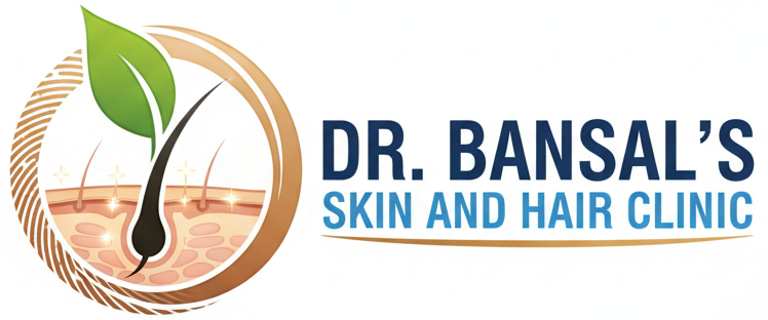Nutritional Deficiency Hair Loss Treatment in Indore
Dr. Bansal's Hair Clinic, Indore
About Nutritional Deficiency Hair Loss
Hair needs proteins, vitamins, and minerals to grow. When any of these essential nutrients is lacking, one may experience diffuse hair thinning, breakage, or shedding.
Common forms of nutritional deficiency hair loss:
Telogen effluvium: diffuse shedding due to stress or nutritional deficiency
Thin, brittle hair due to a deficiency in protein or biotin
Patchy hair loss - less common; may involve autoimmune triggers along with malnutrition
⚠️ Causes / Deficient Nutrients
Nutrient: Source: Role in Hair
Protein Eggs, fish, lentils, dairy, build keratin (hair structural protein)
Iron\tRed meat, spinach, beans\tPrevents anemia-related shedding
Zinc Nuts, seeds, meat, seafood Follicle health and repair
Vitamin DしSunlight, fortified milkしHair follicle cycling
Biotin - Vitamin B7 Eggs, nuts, avocado Hair growth & strength
Vitamin B12: Meat, fish, dairy. Prevents hair fragility & anemia
Folate (B9) Leafy vegetables, beans Cell division & hair follicle growth
Vitamin A: Carrots, sweet potato, spinach. Maintenance of hair follicles
Essential Fatty Acids: Fish oil, flaxseed. Reduces inflammation, improves scalp health
Risk factors:
Vegetarian or vegan diet without supplementation
Crash diets / rapid weight loss
Pregnancy or postpartum nutrient depletion
Chronic malabsorption conditions-celiac and IBD
Treatment
1. Address Nutrient Deficiencies
Blood tests: iron (ferritin), zinc, vitamin D, B12, thyroid
Supplements-if deficient, prescribed by doctor:
Iron (ferrous sulfate)
Vitamin D3
Biotin (5–10 mg/day)
Multivitamin containing B-complex, zinc, selenium
Correcting deficiencies gradually restores hair growth over 3–6 months.
2. Dietary Improvements
Eat a healthy diet with plenty of:
Protein: eggs, chicken, fish, lentils, beans
Iron & Zinc: red meat, spinach, pumpkin seeds
Omega-3 fatty acids: salmon, walnuts, flaxseeds
Foods rich in vitamins include: citrus fruits, C; leafy greens, folate; carrots/sweet potato, A; and dairy, B12.
Tips:
Include protein in every meal
Pair iron-rich foods with vitamin C to enhance absorption
Avoid excessive caffeine or alcohol because they impair nutrient uptake.
3. Topical & Supportive Care
Use gentle, sulfate-free shampoo
Avoid heat styling, chemical treatments, and tight hairstyles
Massage scalp with coconut, castor, or almond oil for improved circulation.
Minoxidil (topical) can be a good option after nutritional deficiencies are corrected.
What Not to Do
Supplements should not be taken when there is no tested deficiency.
Avoid crash diets or skipping meals.
❌ Don't overuse rough chemical hair products
❌ Don't panic, hair growth is slow; it takes months to recover
✅ Prevention Tips
Maintain balanced, nutritious diets
Avoid restrictive diets without supplementation
Check blood nutrient levels if you have chronic hair loss. Take prenatal or postnatal vitamins if pregnant or breastfeeding. Manage stress, get enough sleep
Care
Dr. Shreyas Bansal has over 46 years of experience in promoting hair health and wellness. At Dr. Bansal’s Homeopathy Clinic, located at 2 Manish Bagh, Sapna Sangeeta Road, Indore, we provide personalised care to strengthen your hair, improve scalp health, and restore confidence naturally.
Health Hairs AT
Beauty
+91 9926120111
© 2025. All rights reserved.
